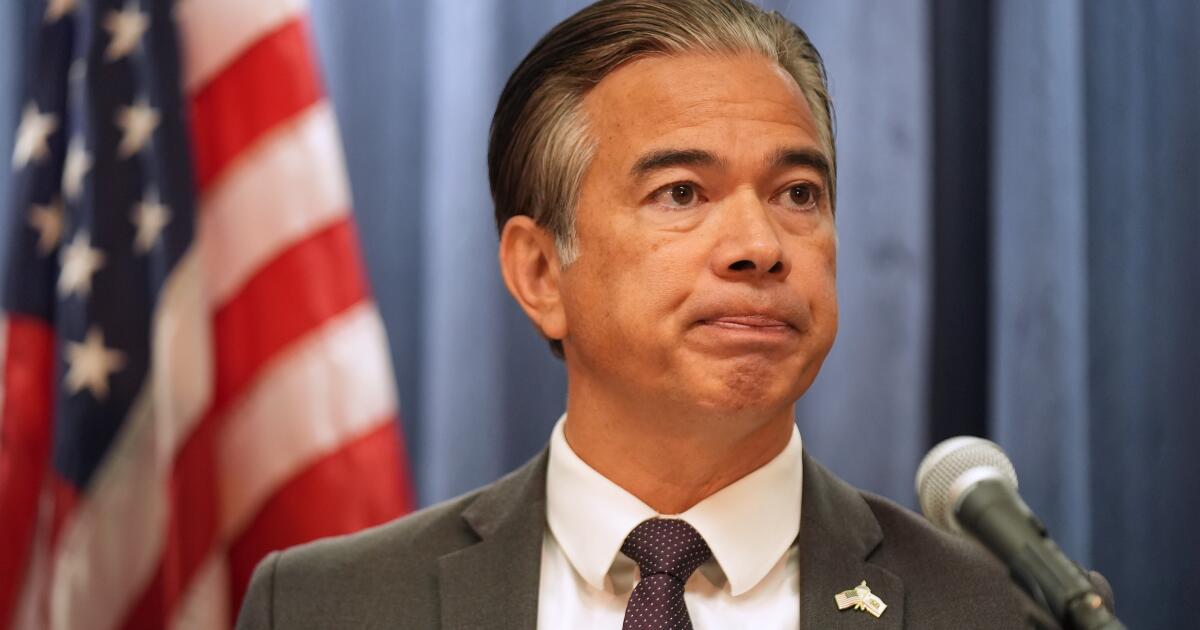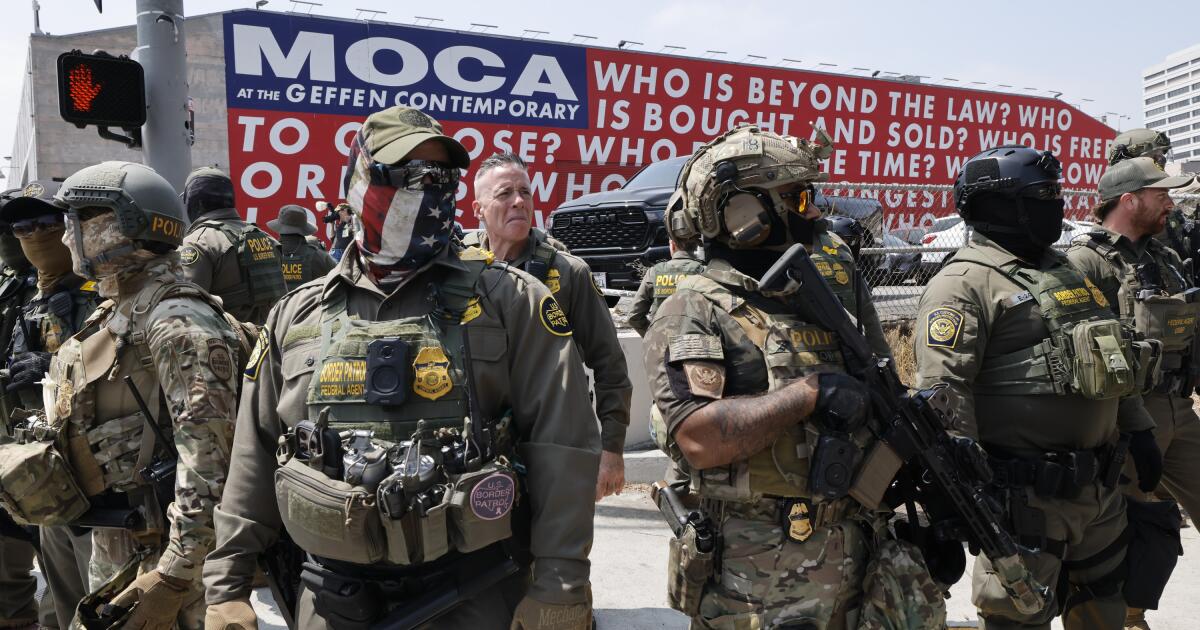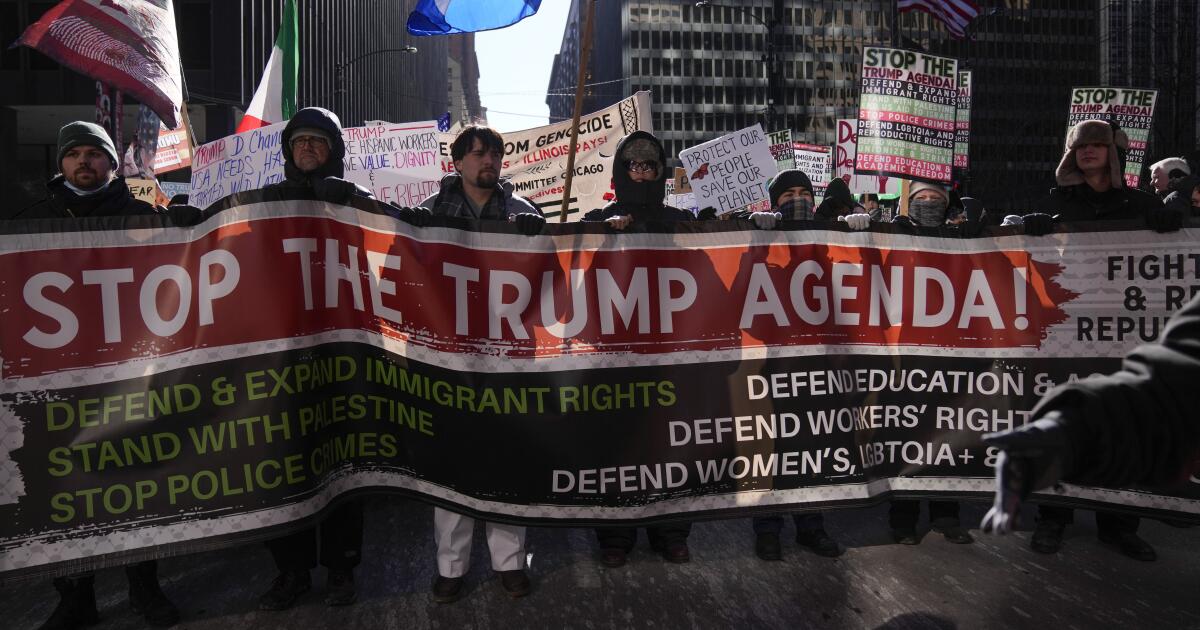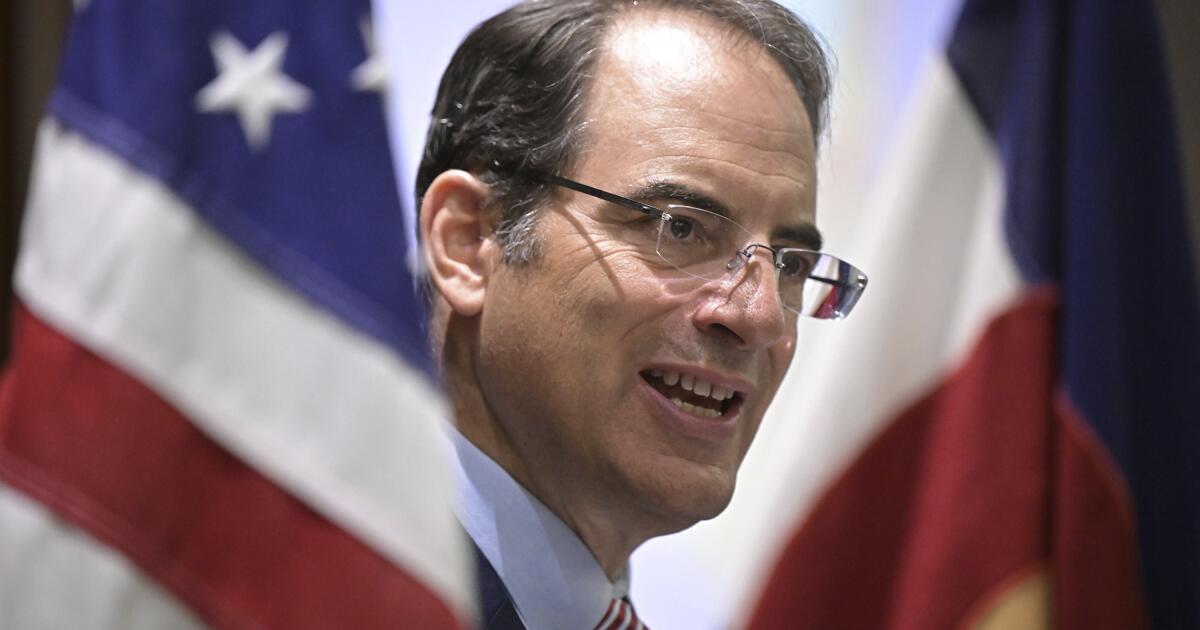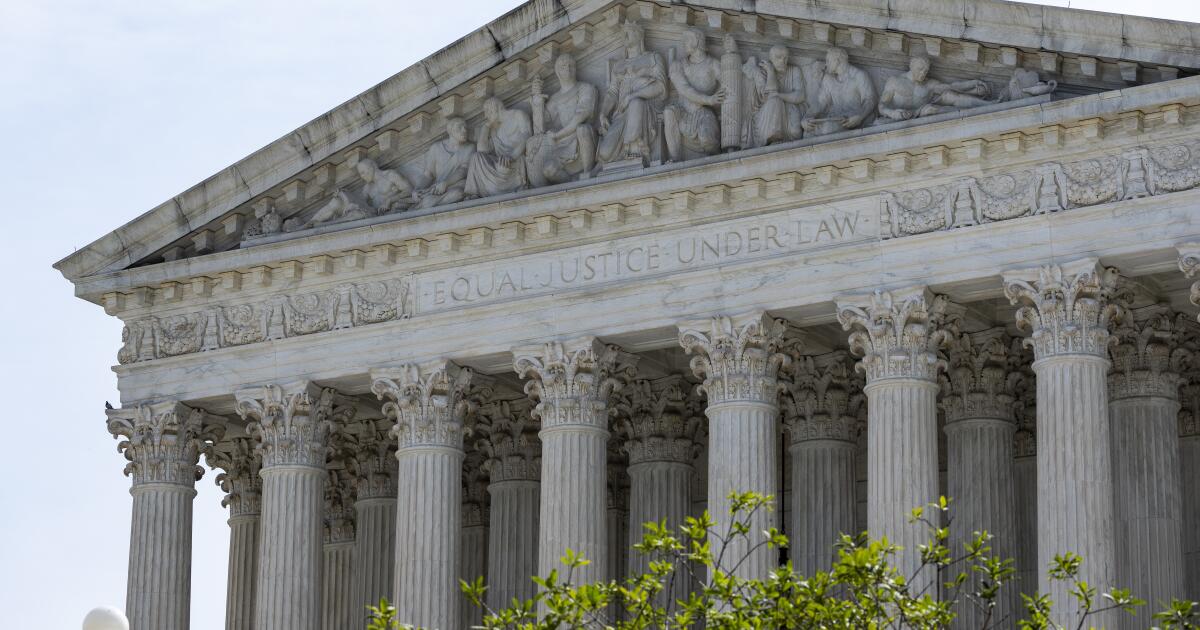States sue Trump administration for tying aid to immigration laws
California and other Democratic-led states sued the Trump administration on Monday for allegedly stripping them of hundreds of millions of dollars in federal security and disaster relief funding based on their unwillingness to aid in federal immigration enforcement.
The lawsuit comes just days after a federal judge in a separate case barred the administration from conditioning similar federal grant funding on states rescinding their so-called “sanctuary” policies protecting immigrants.
California Atty. Gen. Rob Bonta said the latest funding reduction — which the states were notified of over the weekend — flew in the face of last week’s ruling. He criticized it as an illegal effort to force Democratic states into complying with a federal immigration campaign they have no legal obligation to support.
“Tell me, how does defunding California’s efforts to protect against terrorism make our communities safer?” Bonta said in a statement. “President Trump doesn’t like that we won’t be bullied into doing his bidding, ignoring our sovereign right to make decisions about how our law enforcement resources are best used to protect our communities.”
The White House referred questions on the lawsuit to the Department of Homeland Security, which did not immediately respond to a request for comment Monday.
The agency has previously argued that its core mission is to defend the nation’s security against threats, including from illegal immigration, and therefore that it should be able to withhold funding from states that it believes are not upholding or are actively undermining that mission.
The funding in question — billions of dollars annually — is distributed to the states to “prepare for, protect against, respond to, and recover from catastrophic disasters,” and have been distributed “evenhandedly” for decades by administrations of both political parties, the states’ lawsuit argues.
The funding, authorized by Congress in part after disasters such as September 11 and Hurricane Katrina, pays for things such as the salaries and training of first responders, testing of state computer systems for vulnerabilities to cyber attacks, mutual aid compacts among regional partners and emergency responses to disasters, the states said in their lawsuit.
Bonta’s office said California expected about $165 million, but was notified it would receive $110 million, a cut of $55 million, or a third of its funding. Other blue states saw even greater reductions, with Illinois seeing a 69% reduction and New York receiving a 79% reduction, it said.
Other states that are supporting the Trump administration’s immigration policies received large increases, and some more than 100% increases, the suing states said.
They said the notifications provided no justification for the reductions, noting only that they were made at the direction of Homeland Security. And yet, the reason was clear, they said, including because of recent comments by Homeland Security Secretary Kristi Noem and other administration officials who have stated outright that states who do not cooperate with federal immigration policies and that maintain sanctuary policies would see reduced funding.
“The explanation for DHS and FEMA’s last-minute decision to reallocate $233 million in homeland security funds — the Reallocation Decision — is apparent. Although DHS has for decades administered federal grant programs in a fair and evenhanded manner, the current Administration is taking money from its enemies,” the states wrote in their lawsuit. “Or, as defendant Secretary Noem put it succinctly in a February 19 internal memorandum, States whose policies she dislikes ‘should not receive a single dollar of the Department’s money.’”
The states also filed a motion for a temporary restraining order to immediately block the funding cuts — and prevent the Federal Emergency Management Agency from disbursing any related funds that could not be recouped later — as the case proceeds.
Just last week, a federal judge ruled that the administration setting immigration-related conditions on similar emergency funding was “arbitrary and capricious,” and unconstitutional.
“DHS justifies the conditions by pointing to its broad homeland security mission, but the grants at issue fund programs such as disaster relief, fire safety, dam safety, and emergency preparedness,” the judge in that case wrote. “Sweeping immigration-related conditions imposed on every DHS-administered grant, regardless of statutory purpose, lack the necessary tailoring.”
Last month, another judge ruled in a third case that the Trump administration cannot deny funding to Los Angeles or other local jurisdictions based on their sanctuary policies.
In their lawsuit Monday, California and the other states argued that the Trump administration appeared “undeterred” by last week’s ruling against pre-conditioning funding on immigration enforcement cooperation.
After being “frustrated in its first attempt to coerce [the states] into enforcing federal civil immigration law,” the states wrote, “DHS took yet another lawless action” by simply reallocating funding to “more favored jurisdictions” willing to support the administration’s immigration crackdown.
Bonta said the law requires such funding to be distributed based on objective assessments of “threat and risk,” but the weekend notifications showed the Trump administration doing little more than “rushing to work around last week’s order” and “force and coerce” blue states into compliance in a new way.
“This is a lawless, repeat offender administration that keeps breaking the law,” he said.
Bonta said the lawsuit is the 40th his office has filed against the current Trump administration to date. He said his office was in conversation with Gov. Gavin Newsom’s office, and that they both believe that “we deserve all the funding that has been appropriated to us.”
Joining California in Monday’s lawsuit were Connecticut, Delaware, Illinois, Massachusetts, Minnesota, New Jersey, New York, Rhode Island, Vermont and Washington, as well as the District of Columbia. All were also party to the litigation challenging preconditions on such funding that was decided last week.
